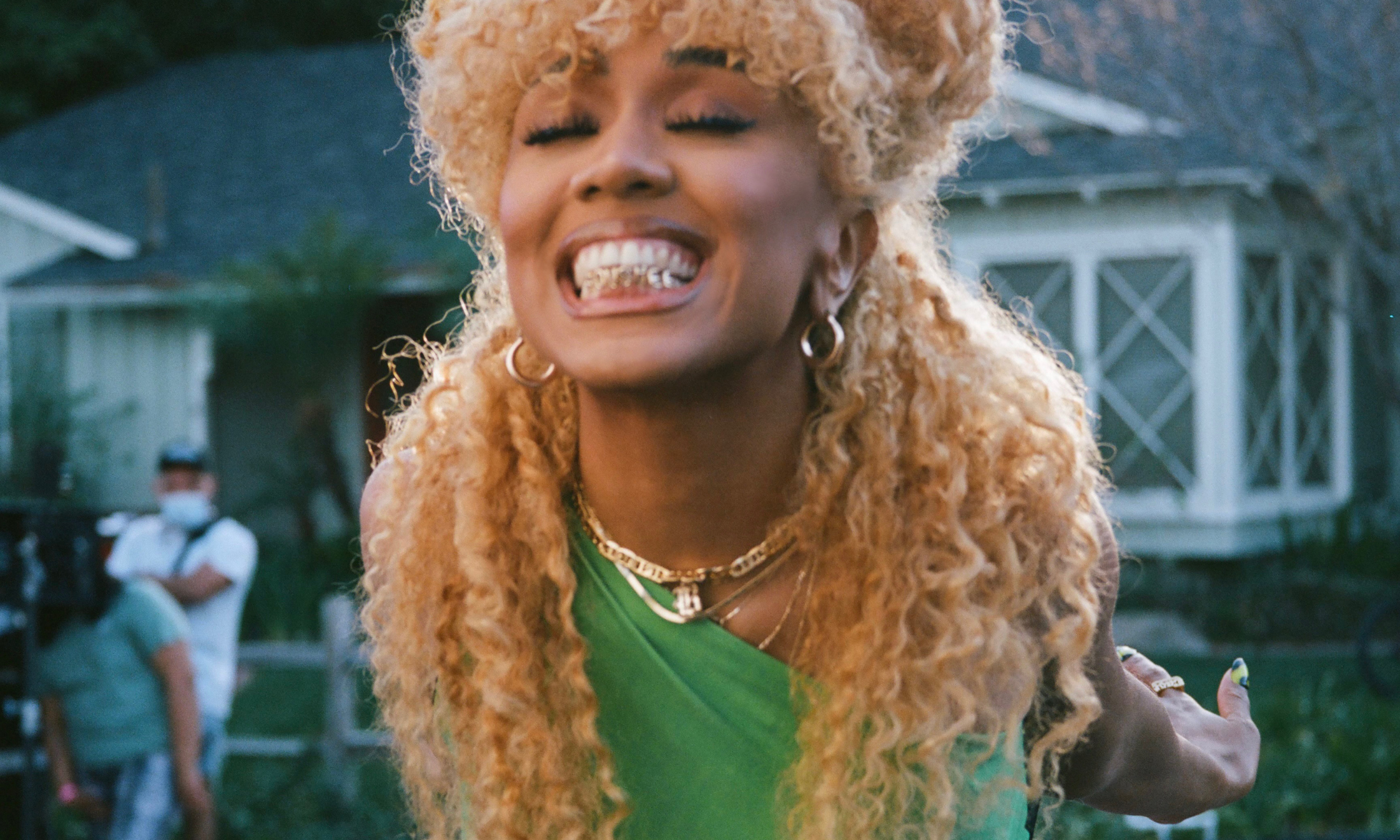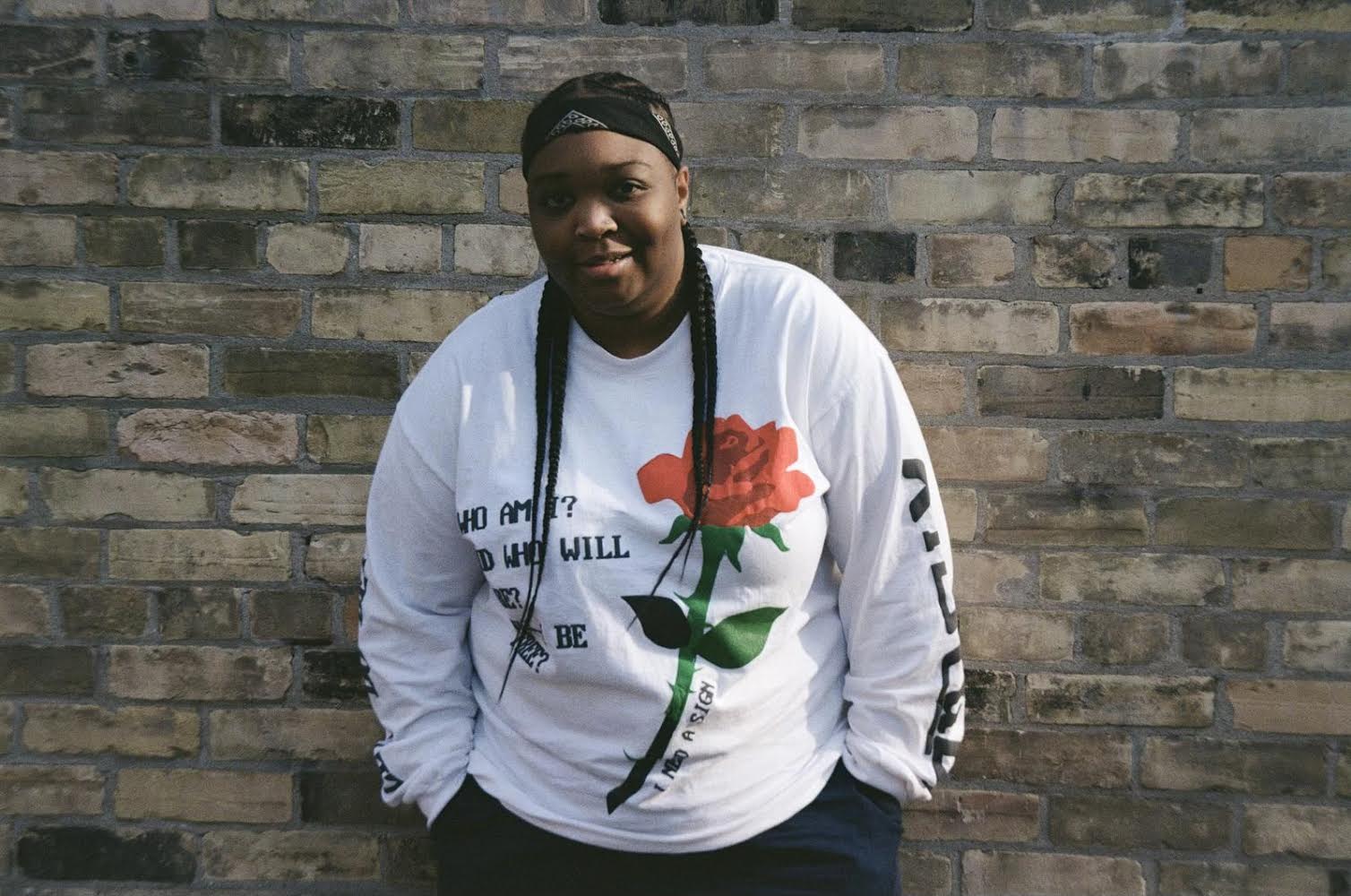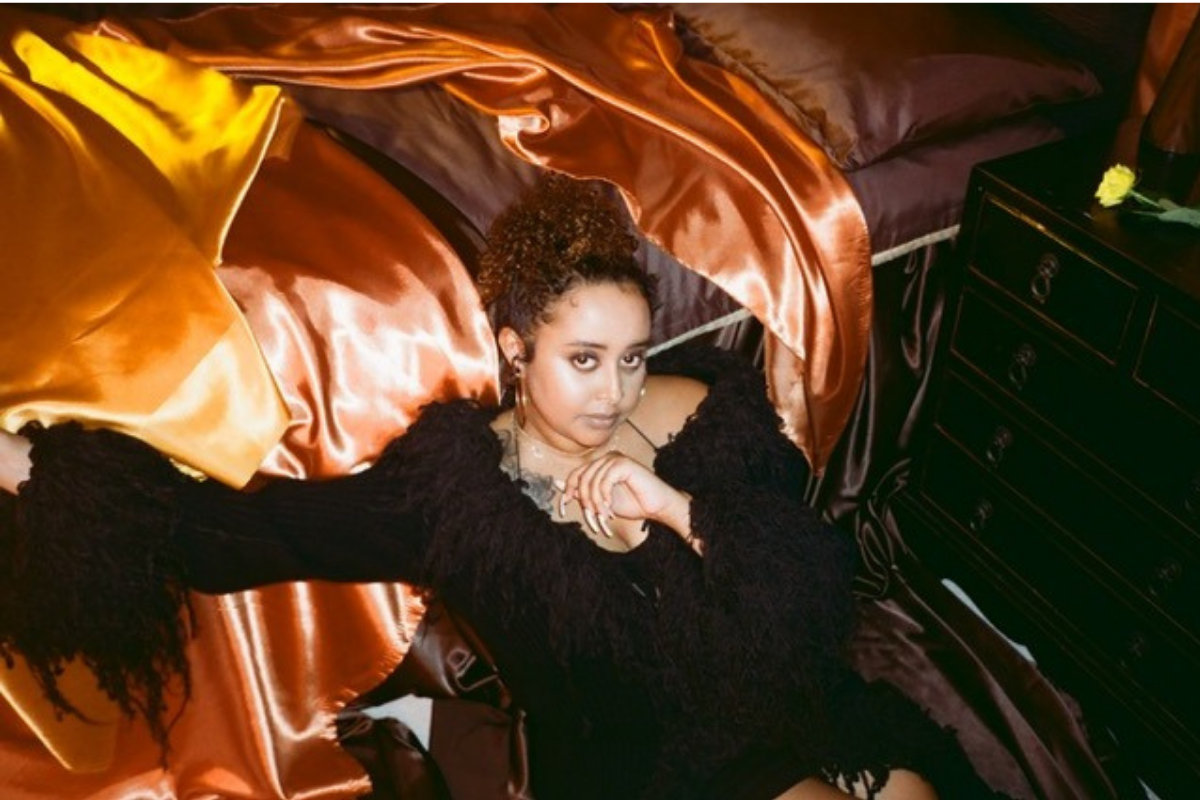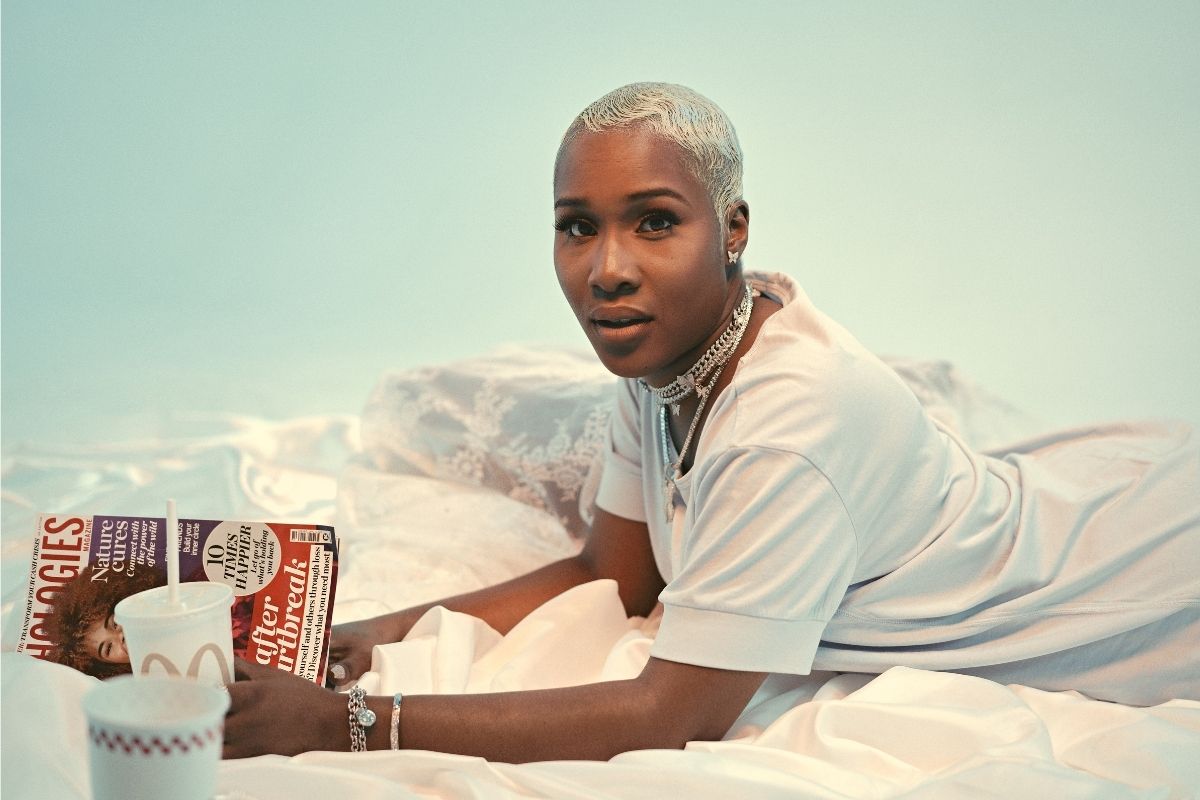
via August Agency
Meet Fousheé, the ‘Deep End’ singer who wants to keep you guessing
Musical polymath Fousheé talks Jamaican heritage, TikTok fame and being the first Black woman to reach the top 10 in Billboard’s Alt Airplay chart in 32 years.
Annique Simpson
13 May 2021
New Jersey native Fousheé couldn’t have asked for a better start to her career.
Since bursting on to the alt-soul scene last year, she’s racked up over 320 million total streams on Spotify alone and made Billboard’s R&B/Hip-Hop Rookie of the Month roster with her autobiographical takes on romance, self-care and empowerment.
Like so many artists thriving right now, Fousheé’s meteoric rise can be traced back to TikTok. Her sampled vocals on rapper Sleepy Hallow’s ‘Deep End (Freestyle)’ could be heard all over the app last year thanks to the popular, same-titled dance challenge.
After going uncredited for months, Fousheé revealed her identity as the song’s vocalist in her own challenge response video, which has been viewed over 6 million times. Soon after, she released her own version of ‘Deep End’, complete with a self-directed video.
But Fousheé is far from your average social media-famous artist. Music is in her blood: her Jamaican mother was a drummer in PEP, an all-women 80s reggae band. Fousheé herself plays several instruments, including the newly-learned guitar. She also sings, raps and writes her own songs – all of which help create her unique blend of soul, hip-hop, R&B and alt-rock.
‘Single AF’ was my introduction to Fousheé. The first three lines of the neo-soul post-breakup anthem (“I tested my patience / Confronted my fears / And finally faced them”) spoke to me so deeply that I immediately abandoned the playlist I was listening to find more of her stuff. I wasn’t disappointed.
Her nuanced storytelling, versatile vocals – sometimes ghostly, sometimes soulfully rich – and genre-bending sound provide an insightful examination of the human experience. Take classic R&B-style tracks ‘Stay Home’ and ‘sing about love’, which celebrate the joys of lust and new romance – a sharp contrast to ‘gold fronts’, her latest single featuring Lil Wayne, where she explores life as a Black person in a global pandemic against a backdrop of choral humming and acoustic guitar.
I recently caught up with Fousheé on Zoom – her in New Jersey, US, me in London, UK. We spoke about creative influences, making chart history and life after ‘Deep End’.
gal-dem: How would you describe your music?
Fousheé: Honest, soothing and witty with the lyrics. It’s music that breaks the rules. I’m a singer but I got bars for you. I’m a Black woman but you might hear some alt or rock music. My songs reflect my life. We all go through the same things so I try and find new ways to explain them. I love making music that keeps people guessing or makes them feel something they’ve never felt before.
“Jamaican culture is embedded in the bass that I move towards… Jamaicans have a way of making something beautiful out of anything”
How has your Jamaican heritage influenced your style and sound?
Jamaican culture is embedded in the bass that I move towards. I love deep rhythmic basslines – it draws me closer to a song and makes me connect with it even more. My look is inspired by Jamaican style. I used to watch these Jamaican theatre plays and there was always a woman with a wild wig and nails. I would take notes because the fashion was so amazing. Jamaicans have a way of making something beautiful out of anything. There’s also a certain confidence in their fashion and the way they present themselves. That’s inspired me a lot.
What was it like knowing you were part of a popular social media trend but not being credited to it?
It put me in a weird position. I’d made a pact with the producers so they could use the sample as they pleased. I’m happy they found use for it but it was frustrating that I couldn’t get my info out there. People were curious about who sung the track which made things more exciting. I couldn’t have planned a more perfect storm.
Everything changed after I did the TikTok video – I got the credit, I got a record deal, [and] the song made radio play. It’s crazy to see how far it’s gone.
You’re the first Black woman to reach top 10 in the Billboard Alternative Airplay chart in 32 years. How did you feel when you found out?
It was a really special moment for me. I didn’t realise the space was so wide. I think it’s opened it up for other artists to come through and take up that space in the charts. I love Tracy [Chapman’s ‘Crossroads’, which made the top 10 in 1989] and I want to make music that breaks boundaries and lasts as long as hers has.
“As Black people, we need to know our history and how to protect ourselves because the world isn’t going to”
So much of your music and visuals put Black women front and centre. How have the recent racial injustice protests affected you and your art?
It’s made me more conscious about the messages that I’m sending. I’m also a little less naïve, although I’m still hopeful. I’m still angry that generations are having to deal with this. It doesn’t make any sense. I don’t know what the solution is, but as Black people, we need to know our history and how to protect ourselves because the world isn’t going to.
You’ve collaborated with Lil Wayne twice now, including your latest single. What’s he like to work with?
He’s a very real person and a man of his word. He was so cool to work with as well. I very much felt I was in a studio with a legend. Plus he was so sweet and respectful. Definitely one of my faves.
What can people expect from your first major project?
I’m bringing back Woodstock: good songwriting, real musicality and alt elements. There’ll also be soul elements – that’s always in my roots – and guitars. Songs that make you want to play them over and over again and dance. Variety: that’s what you can expect.









